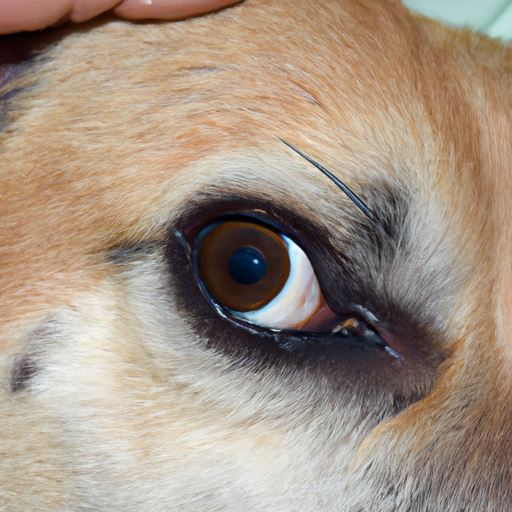Horner’s syndrome is a condition that can affect your beloved canine companion. It is essential to know the signs and symptoms, possible causes, treatments, and preventative measures to ensure your dog’s health and well-being.
What is Horner’s Syndrome?
Horner’s syndrome is a neurological disorder that affects your dog’s sympathetic nervous system, which controls the body’s ‘fight or flight’ response. This condition typically manifests in one side of your dog’s face affecting the eye and surrounding facial muscles.
Common Symptoms of Horner’s Syndrome
Your dog might exhibit various signs indicating the onset of Horner’s syndrome. These symptoms usually appear suddenly and may include:
- Drooping eyelid (ptosis)
- Constricted pupil (miosis)
- Sunken eye (enophthalmos)
- Prominent third eyelid
As a caregiver, you should be on the lookout for these signs. If you notice any of them, it’s vital to get your dog to a veterinarian as soon as possible.
Possible Causes of Horner’s Syndrome
Horner’s syndrome can be triggered by a number of factors. However, it’s often difficult to pinpoint the exact cause. Here are some potential triggers:
- Trauma to the head or neck
- Middle or inner ear infections
- Tumors
- Stroke
These are just a few potential causes. In some cases, the cause remains idiopathic, meaning it’s unknown.
How is Horner’s Syndrome Treated?
Treatment for Horner’s syndrome primarily focuses on addressing the underlying cause. For example:
- If an ear infection is causing the symptoms, antibiotics may be prescribed.
- If a tumor is present, surgery or other forms of treatment might be needed.
In cases where the cause is unknown, your vet may recommend a wait-and-see approach, as the symptoms sometimes resolve on their own.
Preventing Horner’s Syndrome in Dogs
Preventing Horner’s syndrome can be challenging due to the wide range of potential causes. However, regular veterinary check-ups can help catch and address many problems before they lead to conditions like Horner’s syndrome.
Frequently Asked Questions
What is the prognosis for dogs with Horner’s Syndrome?
Most dogs with Horner’s syndrome recover fully once the underlying cause is treated, although the time it takes can vary.
Can Horner’s syndrome in dogs be fatal?
No, Horner’s syndrome itself is not life-threatening. However, it can be indicative of more serious underlying conditions that need to be addressed.
How common is Horner’s syndrome in dogs?
Horner’s syndrome is relatively rare in dogs, but it can occur in any breed, at any age.
Are certain breeds more prone to Horner’s syndrome?
No specific breed is more susceptible to Horner’s syndrome. It can occur in any breed, regardless of size or age.
Can Horner’s syndrome recur in dogs?
Yes, if the underlying cause is not effectively treated, symptoms can recur. Regular veterinary check-ups can help monitor your dog’s condition.



